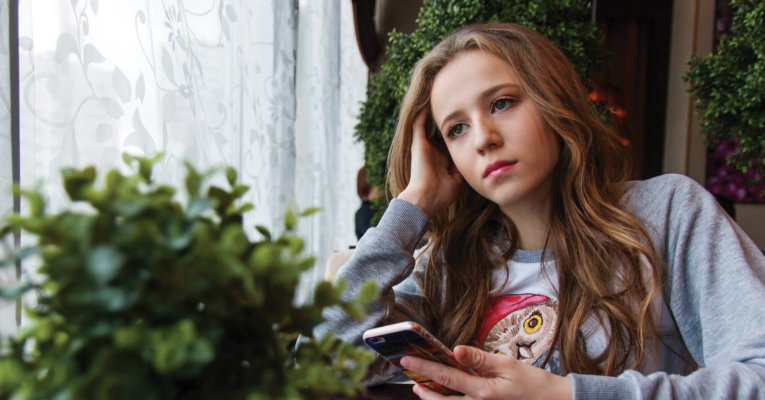Yes, social isolation can lead to loneliness which can affect one’s mental health and wellbeing for adults, but it can also affect children too. Children just might handle it differently. With our world dealing with the Pandemic/Covid-19 virus, social isolation and loneliness are becoming more prevalent, but there are ways to help your child get through it. Parents need to be very attentive to each child and how they are reacting to life at home without much interaction with their friends.
Changes parents should be on the lookout for during this time:
- Excessive crying or irritation in younger children
- Returning to behaviors they have outgrown (for example, toileting accidents or bedwetting)
- Excessive worry or sadness
- Unhealthy eating or sleeping habits
- Irritability and “acting out” behaviors in teens
- Poor school performance or avoiding school(even while at home)
- Difficulties with attention and concentration
- Avoidance of activities enjoyed in the past
- Unexplained headaches or body pain
- Use of alcohol, tobacco, or other drugs in older children
How parents react and handle stress during this time is key to kids feeling normal. If parents focus on the stress of it all, then kids are going to feed off of this and have issues. The less we give power and attention to it, the less our kids are likely too as well. Talking with your children is important if you see them withdrawing. Seeking help early is also key.
Ways to support your child:
- Talk with your child about the COVID-19 outbreak.
- Answer questions and share facts about COVID-19 in a way that your child can understand.
- Reassure your child that they are safe. Let them know it is okay if they feel upset. Share with them how you deal with your own stress so that they can learn from you how to cope with stress.
- Limit your family’s exposure to news coverage of the event, including social media. Children may misinterpret what they hear and can be frightened about something they do not understand.
- Try to keep up with regular routines. If schools are closed, create a schedule for learning activities and relaxing or fun activities.
- Be a role model. Take breaks, get plenty of sleep, exercise, and eat well. Connect with your friends and family members.
- Spending time with your child in meaningful activities, reading together, exercising, and playing board games.
Isolation Tip #1: Try (Virtual) Teamwork!
Parents should try to create new ways for children to form teams to do an activity they can do at the same time as their friends while on lockdown at home. That might be a puzzle-of-the-week team for example or perhaps a book club.
Isolation Tip #2: Daily Check-Ins
Outside of digital communication, children and families can start their day by journaling or writing down what they like about the specific people they miss. Other possible projects include sending a handwritten note to friends, making plans for activities to do once the restrictions are lifted, having daily check-ins with family members on feelings of loneliness and missing friends, and working with family members to create a memory book.
Isolation Tip #3: Validate Your Child's Feelings
Children are hearing a lot about the stress of adults under quarantine, and it can be meaningful to hear that their stresses are also significant. A simple comment like, ‘I know this must be so hard for you,’ or, ‘It’s not fair that you can’t see your friends,’ can help children feel like their parents understand why they are struggling right now.”
Isolation Tip #4: Add an Activity
It can be hard for kids to feel the same sense of connection in Zoom meetings as they would if they were meeting a friend in real life. Adding an activity, such as completing a craft together or baking a simple recipe with help from a parent, can help make virtual playtime feel more real. You might also explore other non-screen ways to keep kids in touch, such as finding a pen pal for exchanging letters and drawings.
Even though social isolation and loneliness are very prevalent right now, parents can help their children deal with their feelings. Try to talk to your child about their experience in a minimalist, searching way. Rather than suggesting what their reaction might be, ask open-ended questions to get at their true feelings. “It’s important to be curious about it,” and say things like, ‘What’s the thing that’s most on your mind right now?’ Especially for younger kids who are less verbal, keep track of whether they’re sleeping and eating normally, and whether there are any big changes in behavior. If your verbal kid identifies a problem (“I miss music class”), see if they want to problem-solve the issue (maybe a virtual solution?), or if they just want space to be sad about it with you. For all kids, keeping to some kind of a routine (showering, putting on clothes), going out on walks, and building time into your schedule for family interaction—movie night, cooking together, family games (board or video)—can help a lot. This time of isolation cannot last forever, but hopefully these tips will help parents as they navigate these trying times.
https://hechingerreport.org/a-drastic-experiment-in-progress-how-will-coronavirus-change-our-kids/
https://www.kars4kids.org/blog/coronavirus-isolation-how-to-help-children-feel-a-little-less-lonely/
https://slate.com/human-interest/2020/03/coronavirus-isolation-loneliness-children-parenting.html






